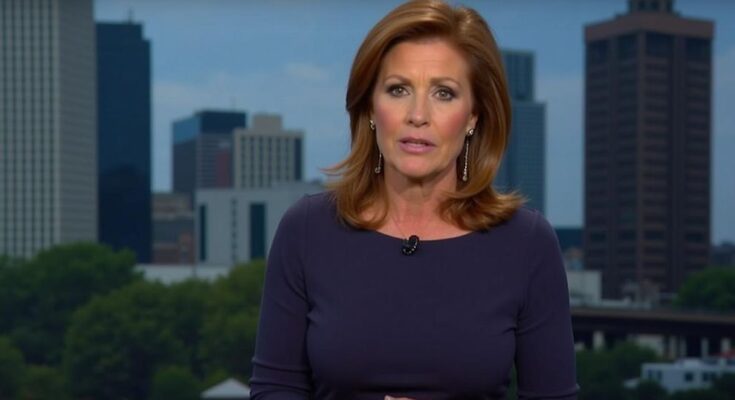CBS Moderator Norah O’Donnell received criticism for her biased handling of Hurricane Helene’s discussion during a vice presidential debate. Instead of focusing on the immediate human impact, she redirected questions towards climate change, prompting backlash from viewers who felt the moderator neglected the real crisis at hand. This approach is emblematic of a larger trend in media where political agendas overshadow pivotal humanitarian issues.
During a recent segment concerning Hurricane Helene’s devastating impact on western North Carolina, CBS moderator Norah O’Donnell faced backlash for her apparent bias regarding climate change. While introducing a question aimed at vice presidential candidates J.D. Vance and Tim Walz, O’Donnell shifted the focus from the immediate humanitarian crisis to a discussion on climate change, prompting criticism from viewers and analysts alike. She stated, “The storm could become one of the deadliest on record. More than 160 people are dead and hundreds more are missing,” before pressing the candidates to address the responsibilities of the Trump administration in relation to climate change. Critics argued that O’Donnell’s framing lacked sensitivity to the tragic circumstances affecting real people, instead prioritizing political narratives over substantive dialogue. O’Donnell’s approach was perceived as an extension of CBS’s historical tendency to lean towards certain political perspectives without providing necessary context or factual checks. Meanwhile, candidate Tim Walz’s responses mirrored this sentiment, often using questions about current events, such as the US-Iran situation, to satisfy partisan agendas rather than focusing on the realities faced by constituents. Notably, during a discussion on international relations, Walz engaged in allegations that sought to diminish the previous administration’s foreign policy achievements. The ongoing debate, marked by moments of tension and interruptions, underscores the challenge of addressing significant issues while navigating partisan biases. The juxtaposition of immediate crises and political maneuvering indicates a broader challenge in discourse surrounding national events.
The article discusses a recent debate segment televised by CBS, in which moderator Norah O’Donnell addressed Hurricane Helene’s devastation in North Carolina. The hurricane, which caused widespread destruction, resulted in significant casualties and displacement. O’Donnell’s shift in focus from the humanitarian crisis to climate change issues disappointed many viewers, highlighting a trend wherein journalistic reporting minimizes immediate concerns in favor of broader political themes. This illustrates a growing disconnect between media incentivization and the fundamental principles of empathetic reporting during crises.
In conclusion, Norah O’Donnell’s handling of Hurricane Helene’s aftermath within the context of climate change generated significant criticism for lacking sensitivity to the immediate sufferings of those affected. Amid high-stakes political discussions, the tendency to prioritize ideological conversations over pressing humanitarian issues signals a concerning trend in media coverage. The reactions towards the debate reflect a broader dissatisfaction with how urgent crises are intertwined with political narratives rather than addressed as standalone humanitarian priorities.
Original Source: www.outkick.com




